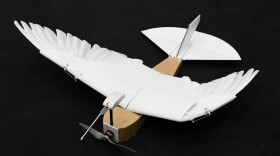
Merrit Kennedy
Merrit Kennedy is a reporter for NPR's News Desk. She covers a broad range of issues, from the latest developments out of the Middle East to science research news.
Kennedy joined NPR in Washington, D.C., in December 2015, after seven years living and working in Egypt. She started her journalism career at the beginning of the Egyptian uprising in 2011 and chronicled the ousting of two presidents, eight rounds of elections, and numerous major outbreaks of violence for NPR and other news outlets. She has also worked as a reporter and television producer in Cairo for The Associated Press, covering Egypt, Yemen, Libya, and Sudan.
She grew up in Los Angeles, the Middle East, and places in between, and holds a bachelor's degree in international relations from Stanford University and a master's degree in international human rights law from The American University in Cairo.
-
Transportation in and out of the city of 11 million is being shut down as cases of the coronavirus are being reported throughout China and abroad. Wuhan is believed to be the contagion's epicenter.
-
The freshman lawmaker says she felt that it was particularly important for her to speak out about her condition because her hairstyle, Senegalese twists, has become a part of her political brand.
-
Birds change the shape of their wings far more than planes. The complexities of bird flight have posed a major design challenge for scientists trying to translate the way birds fly into robots.
-
Moustafa Kassem, who sold auto parts in New York, was arrested amid a massive crackdown in Egypt in 2013. He had been on hunger strike for more than a year at the time of his death.
-
Caskets holding the bodies of Maj. Gen. Qassem Soleimani and others killed in a U.S. drone strike last week in Iraq were paraded though the streets of Tehran as mourners chanted "death to America."
-
Security forces fired tear gas at demonstrators as President Trump called on Iraq to intervene with force. The protesters are angry about a series of U.S. airstrikes on an Iranian-backed militia.
-
The protesters set fire to a reception area inside the compound as Marines fired tear gas to push them back. The angry demonstration follows a series of U.S. airstrikes inside Iraq and Syria.
-
He Jiankui announced in November 2018 that he had created the world's first gene-edited babies. Scientists are concerned about unintended side effects that could be passed down to future generations.
-
"It's not about putting military service members in space," one expert said. The new branch will basically reorganize what the military does in space and elevate it to a single chain of command.
-
Scientists say that for the first time, they've managed to extract an entire ancient human genome from anything other than human bones or teeth. It told them a lot about the person chewing the gum.











